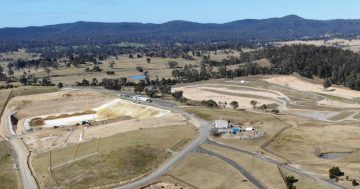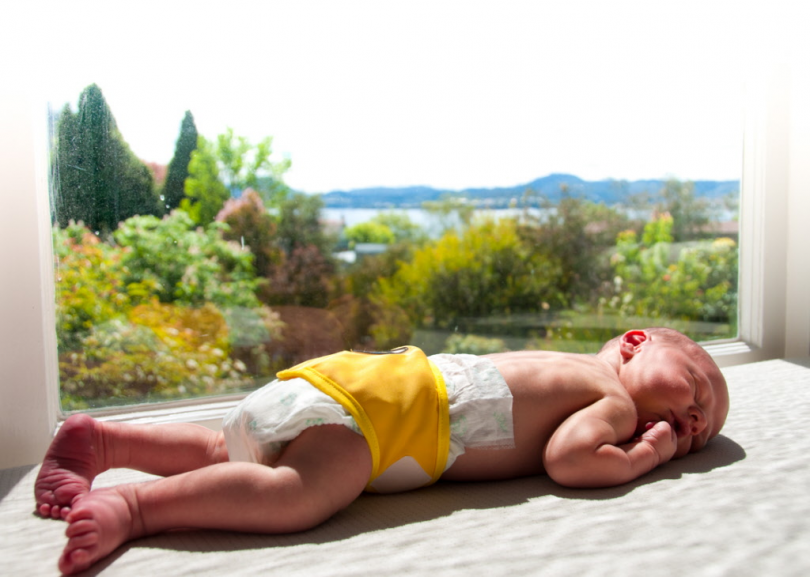
Fifty Bega Valley families have trialled the Tasmanian company Eenee’s compostable nappies. Photo: Eenee.
Bega Valley locals and Bega Valley Shire council are stepping up to find a solution for one of Australia’s trickiest waste issues, the use of plastic nappies and incontinence products, of which an estimated 800 million are put into landfill each year.
Fifty families have been issued a complimentary supply of Tasmanian-based compostable nappy manufacturer Eenee’s products and for part of the trial period, were disposing of the nappies in their FOGO (Food Organics Garden Organics) bins, as part of a test run by Bega Valley Shire Council’s waste team to see if the nappies will be compatible with FOGO.
“During the FOGO trial, we bagged the nappies and compostable wipes into bio-bags and put them into a bin which went to council’s trial compost site. It was so easy!” says Leanne Chapman, of Bega, who has been using the compostable product with her own toddler and also four of the children who attend her family daycare.
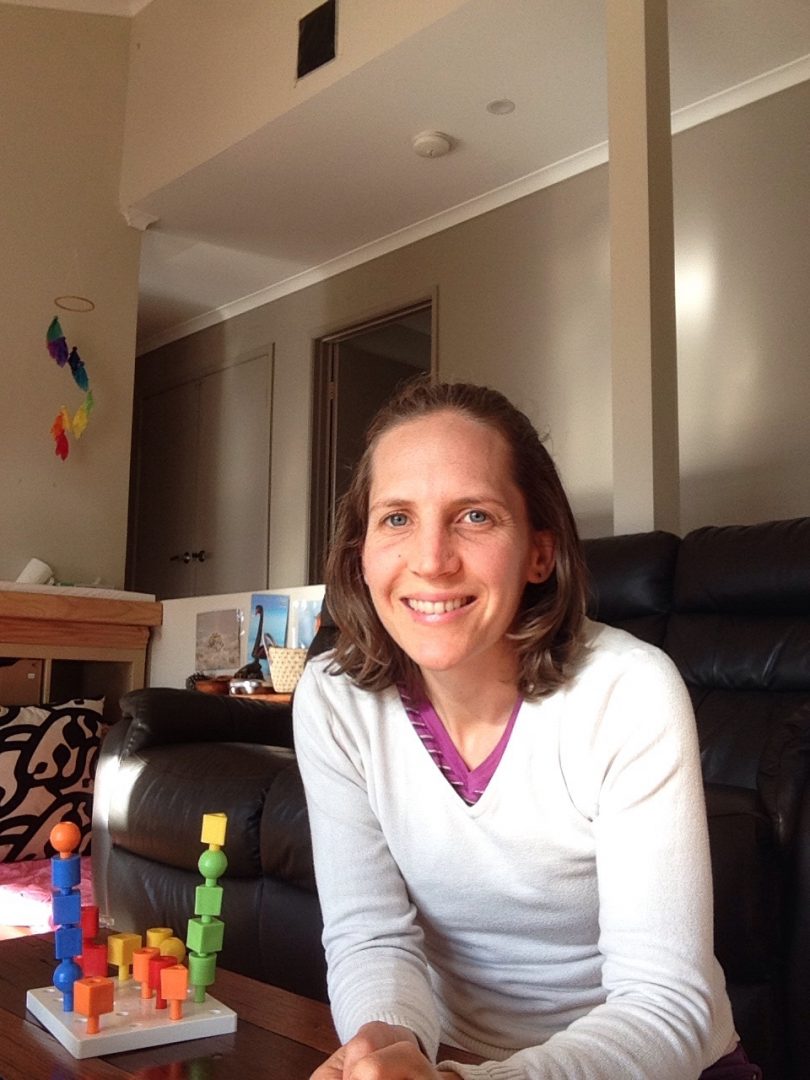
Leanne Chapman was one of 50 Bega families who used compostable Eenee’s nappies for the trial. Photo: Supplied.
The big question is how the compostable products fair in council’s FOGO compost test and if making the switch to a compostable product will be cost-efficient for parents and carers.
Waste Management Coordinator, Joley Vidau says that the trial results won’t be available until next year as the team monitors how the products break down over time.
“We have rigorous testing that needs to be completed before we can add a new product into FOGO.”
Both Leanne and Arian Manca, of Tura Beach, who also took part in the trial, say they would use the compostable product if it was cost-efficient.
“I’ve been using mostly cloth nappies with my kids up until we did the trial,” Arian shares “and I do that for three reasons: it’s cheaper than disposables, better for the environment and also my youngest son has a reaction to whatever is in the plastic nappies.”
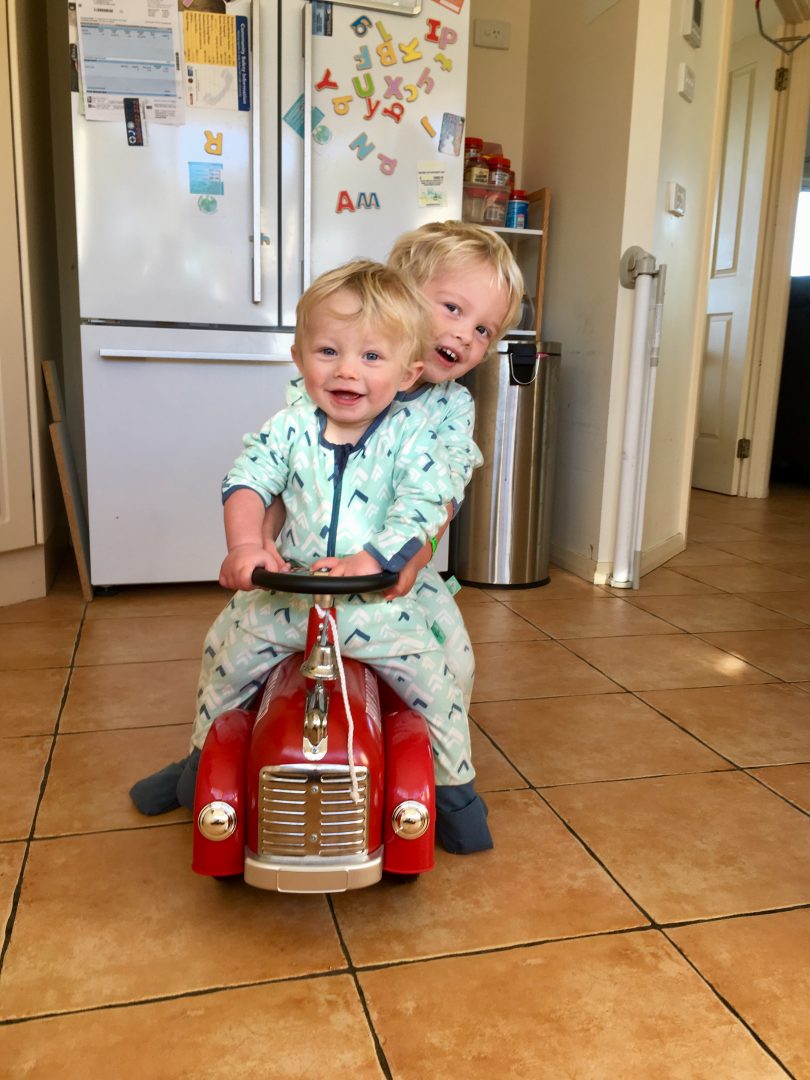
Arian Manca, of Tura Beach, took part in the nappy trial with her two sons, Luca, 1 and Archie, 2. Photo: Supplied.
A trained nurse, Arian says that when considering the cost of using plastic nappies, we need to look long-term.
“I was taught as a nurse that prevention is cheaper than treatment. I think it could be comparable to the cost of filling landfill at the rate we are for the council to subsidise families who use cloth or compostable nappies.”
Both Leanne and Arian have used a combination of modern cloth nappies and disposable nappies on their children and report that the compostable product was comparable in terms of performance.
“Apparently, it’s the plastic tabs that pull the nappy tight which are hard to make biodegradable,” Leanne explains “so the Eenee’s come with a fabric belt with velcro which holds the absorbent part of the nappy on. It takes a bit to get the hang of it but once you get going, it’s easy.”
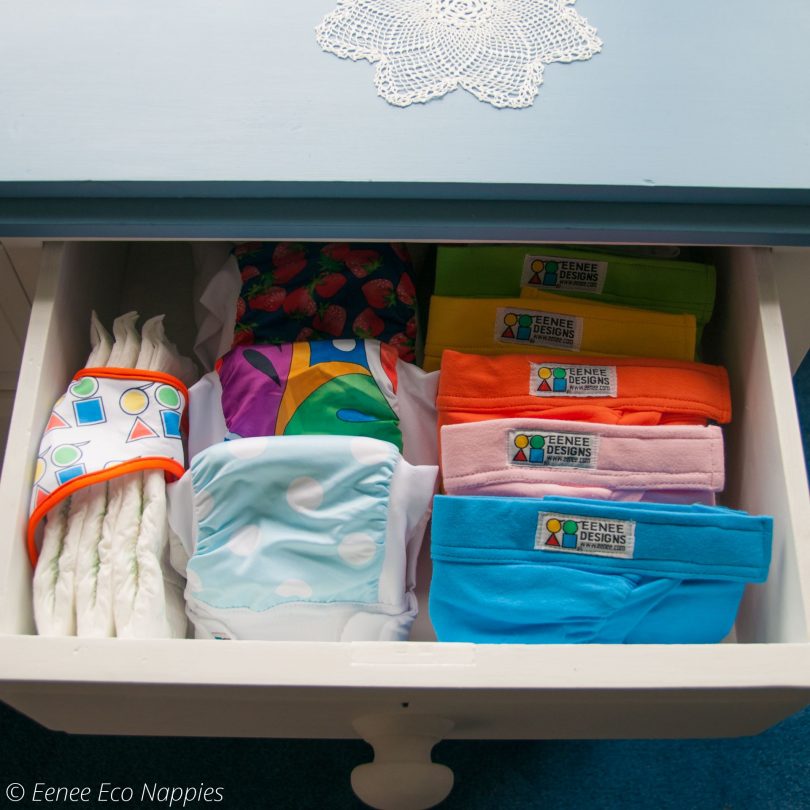
Making the switch to a compostable product was relatively pain-free, according to Bega Shire council trial participants Leanne Chapman and Arian Manca. Photo: Eenee.
The Environment Protection Authority is supporting the trial locally, recognising that it has the potential to address a major landfill issue facing councils across Australia.
Ms Vidau says it is an exciting project for the Bega Valley but stressed that the community needs to continue putting their nappies and incontinence products in their red bins until trial results are available next year.
“We know from the incredible response we had to FOGO, with among the lowest contamination rates in Australia, that our community is keen to embrace anything that reduces what goes into landfill,” she says.
“But people need to keep using their red bins for nappies and incontinence products for now. This is just a small, carefully managed trial and we all need to be patient to see if it works.”
Council has been working on the trial design and approvals for 10 months, “we have put a lot of planning into this so that if it works, it’s a model that can be replicated across Australia,” Ms Vidau says.
For more information, please visit Bega Valley Shire Council and follow Bega Valley Waste and Recycling on Facebook.
This is a sponsored article, though all opinions are the author’s own. For more information on paid content, see our sponsored content policy.






